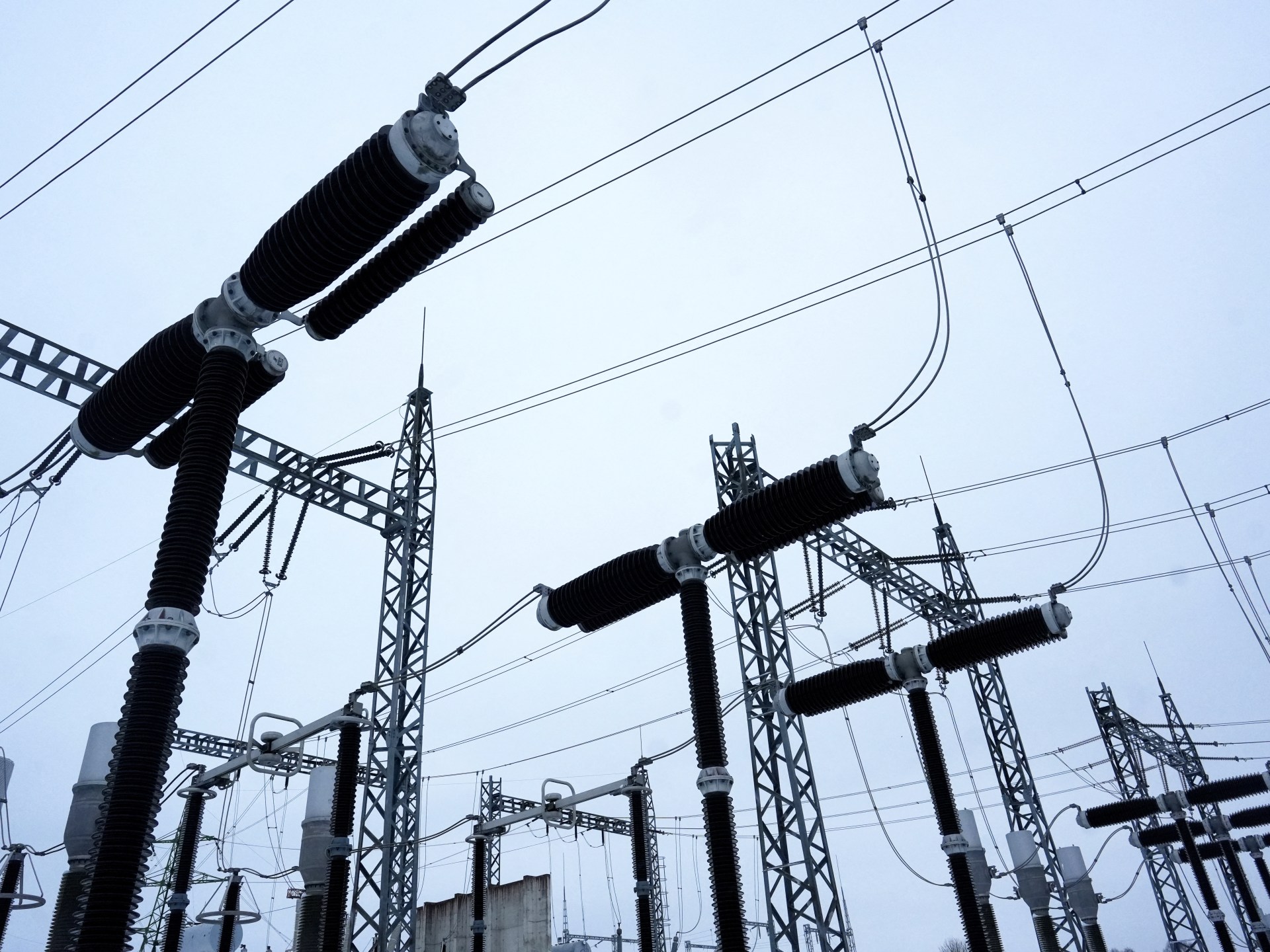Physical Address
304 North Cardinal St.
Dorchester Center, MA 02124
Physical Address
304 North Cardinal St.
Dorchester Center, MA 02124

The Baltic countries in Estonia, Latvia and Lithuania officially cut the flow of electricity between them and Russia after officials stopped transportation lines on the Soviet network and joined the rest of Europe.
This came after more than three decades of the collapse of the Soviet Union, which ends the final energy relations of Belitis with oil -rich Russia. For the three countries, as well as the rest of Europe, this step was soaked in geopolitical and symbolic importance.
Here is what you need to know about the Baltic countries that end electricity relations with Russia:
On Saturday, all the remaining lines were stopped between the Baltic and Russia countries, BERUS and Russian Exclave of Kaliningrad, described by European Union members Poland, Lithuania and the Baltic Sea, one by one.
For 24 hours after separating from the network that dates back to the Soviet era, the Baltic power system operates independently before combining it with European energy networks on Sunday afternoon.
After separating from the IPS/UPS network, the Baltic countries cut the high -voltage transmission lines across the border in East Latvia, about 100 meters from the Russian border, and received pieces of chopped wires to passers -by as is the case with souvenirs.
Analysts say that maintaining fixed energy supplies requires a stable network frequency, which can be obtained more easily over time in a large synchronous region like Russia or continental Europe, compared to what the Baltic can do on their own.
The Baltic countries inherited their electrical infrastructure from the Soviet Union, which was established in the fifties, and remained part of the Russian Braille network even after obtaining independence in 1990.
Although they stopped buying Russian electricity after the invasion of 2022 for Ukraine, their energy networks remained physically connected to Russia and belarus.
This means that their electricity supplies are still controlled by Moscow, leaving their factories and the basic facilities that depend on Russia to obtain a stable power.
According to a report issued by free policy summaries, a publication of the Eastern Europe search and emerging economies (Free Network), the Baltic countries imported about 10 percent of electricity from Russia before 2022.
The energy system has been combined with European energy networks through several links with Finland, Sweden and Poland.
The European Commission praised the cutting of electricity.
“The Baltic energy system is in our hands, we are in full control,” said Lithuania’s Energy Minister Zivantas Vikonas.
The president of the country, Gitanas Nazida, told the Associated Press news that it was “a historic moment, which is the end of a long journey for Litania, Latvia and Estonia.”
“From now on, we have achieved full energy independence. The president said that the period of political pressure and blackmail has finally ended.
The European Union welcomed the Baltic cases that join its electrical network.
“Russia is no longer able to use energy as a tool for blackmail,” said Kaja Callas, the high representative of the European Union for Foreign Affairs and Security Policy. Class was the first prime minister in Estonia, from 2021 to 2024.
Lithuania, Latvia and Estonia will permanently separate from the Russian power network tomorrow.
Russia can no longer use energy as a blackmail tool.
This is a victory for freedom and European unity.
– Kaja Kallas (@kajallas) February 7, 2025
The chapter means that the Russian Aliningrad ISCLAVE, which is located between Lithuania, Poland and the Baltic Sea, is cut off from the main network in Russia – it must now maintain its power system alone.
The Kremlin said it had taken all the necessary measures to ensure operation without interruption and reliability of the electricity system, including building many gas stations in Kalinigad.
“Electricity lines are dismantled with Russia and Bearus. Ursula von der Lin, head of the European Commission, said that the power lines chains that connect you with hostile neighbors will be something of the past.
The authorities have warned of potential risks, including sabotage, electronic attacks and misinformation.
“There are short -term risks, such as the motor processes against critical infrastructure, electronic attacks and misinformation,” the Ministry of State Security in Lithuania told Agence France Presse.
The Baltic region is on maximum alert after the interruption of pipelines, communications and gas between Balik, Sweden or Finland. It was believed that all of them were caused by ships that drag the moorings along the sea floor after Russia’s invasion of Ukraine.
Russia denied any involvement.
“The recent incidents that involve the infrastructure at the sea in the Baltic Sea provides the issue of a major concern.” Litani Nawasda president said:
Poland and the Patis published marine assets, elite police units and helicopters to monitor the area after the surface association occurred from Finland to Estonia in December, while the army began in Lithuania training to protect the ground relationship with Poland.
Analysts say that any additional damage to the links can push energy prices in tik to levels that have not been seen since the invasion of Ukraine, when energy prices rise.
PSE power network operator PSE said it would use helicopters and drones to take a relationship with Lithuania.